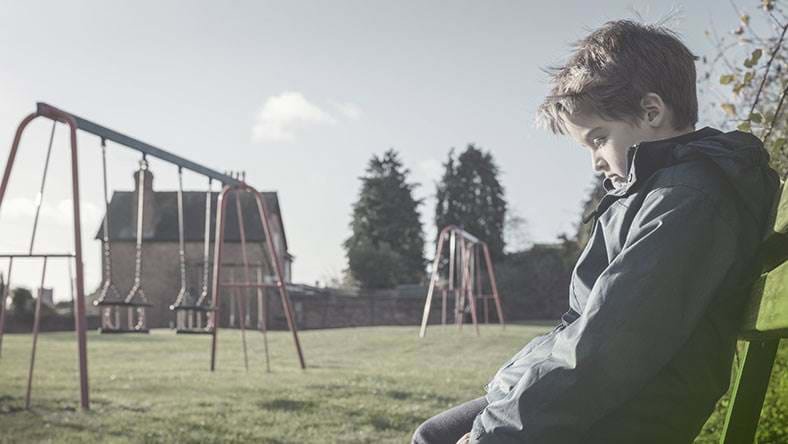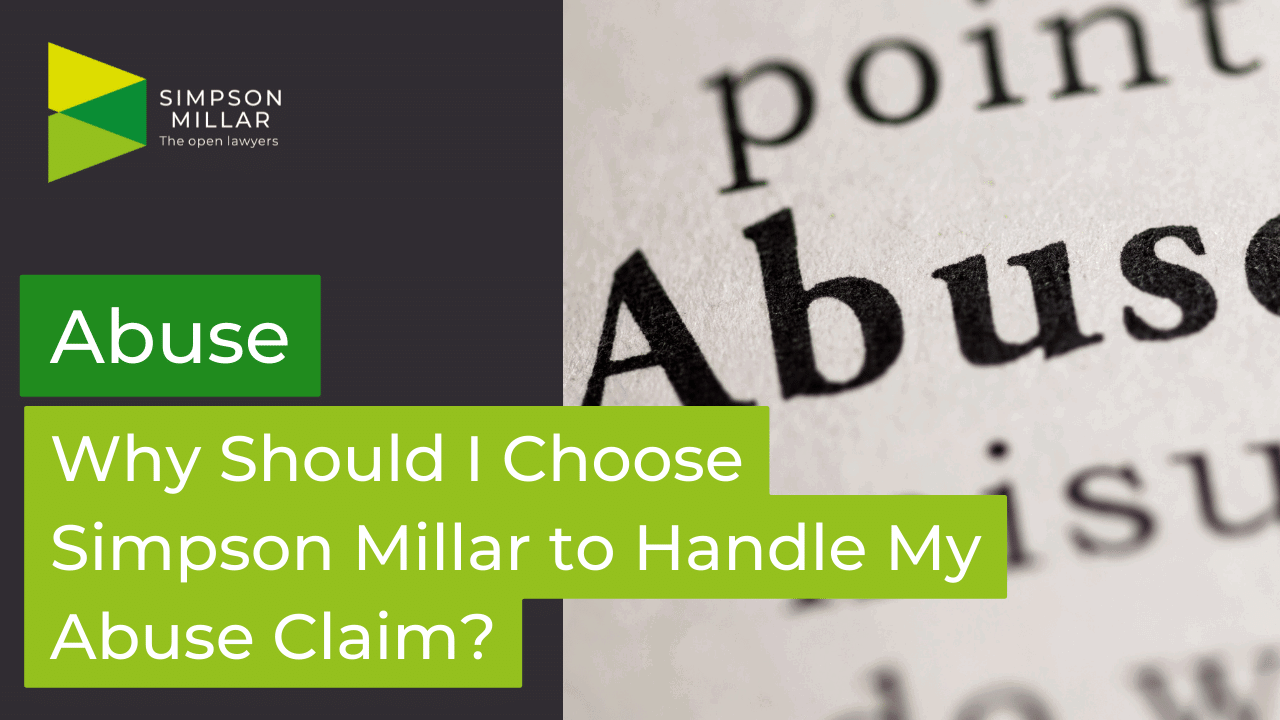
Liam Goggin
Director of Public Law Practice Area
Being abused as a child is one of the most devastating things to happen to a person. It can affect every aspect of your life and you may feel there is no one to turn to for support. Our Child Abuse Solicitors know that speaking about what happened to you takes enormous courage. We also understand that it may have taken you years to come forward and claim compensation.
Most tell us that making a claim for historic child abuse isn’t about money. It’s about getting justice, making sure abuse doesn’t remain hidden, getting the support you need and finding peace after many years of suffering. Coming forward can also help to improve current processes, and put changes in place that prevent other children from suffering abuse in the future.
Our Abuse Team have been helping survivors for more than 30 years and can support you in taking the first steps towards suing social services or criminal injuries claim. We'll do everything we can to make the whole process as easy as possible for you.
Contact us for a free case assessment, and we'll talk to you about how we can help. Ask about whether you qualify for Legal Aid or if we can deal with your claim on a No Win, No Fee basis.

Child abuse is when a child is harmed by an adult or another child either sexually, physically, or mentally. It can also include neglect where the basic needs of a child, such as food, education, and healthcare (to name but a few) are not met.
Children can suffer abuse in many types of settings. We have experience in compensation claims resulting from:
Historical child abuse is abuse that happened many years ago. Everyone who supports child abuse survivors, including solicitors, the police, and the courts understand that it can take a long time for some survivors to come forward. In some cases, an historic abuse redress scheme has been established to make it easier for survivors to claim compensation.
We’ll take you through what options are available for you to claim compensation and provide you and your family with all the support you need throughout the process.
Child abuse is categorised into the following:
This includes the hitting, slapping, shoving, burning, and kicking of a child. Physical abuse can also occur through the use of objects such as canes, lighters, or other items used to punish or deliberately wound.
Sexual abuse is where a person engages in sexual contact with a child without their consent. These cases can be complex and distressing. Our Abuse Solicitors have the expertise and experience to manage your claim with sensitivity and compassion.
Name-calling, humiliation, harassment, threats of violence, sexting, revenge pornography and/or letting a child see another being abused are examples of emotional abuse. This can leave mental scars that are as painful and long-lasting as physical ones.
Child neglect is when a child's caregiver fails to provide basic needs such as food, housing, clothing, healthcare, education, and safety. According to the NSPCC, neglect is the most common form of child abuse.
You won’t pay any money upfront for your legal fees but you will have to pay for additional costs, known as Disbursements, like Court fees or expert reports fees. This can be covered by an insurance product called After the Event Insurance which would cover these costs for you. Your case handler will provide more detail about this.
You’ll sign a Conditional Fee Agreement or a Damages Based Agreement that says if you lose your case, you won’t pay our legal costs. If you win your case, the other side will pay for a proportion of our legal costs, but we will also deduct a success from your damages which will be capped at a percentage agreed in advance.


We know the courage it took for you to come forward. So, we make the compensation process simple and easy by going through the following steps:
Compensation for child abuse varies. Factors that can influence the amount include:
We'll make sure your compensation settlement reflects the seriousness of what's happened to you and is in line with current laws and guidelines that apply to your case.
People often use compensation to pay for therapy to help them recover from the trauma of child abuse. Compensation can also pay for your living expenses if you are not able to work for a time.


We know how stressful appearing in court can be, especially after everything you've been through. Our Child Abuse Solicitors will do everything they can to reach an early settlement. But if you do have to attend court, we'll be by your side, providing all the support you need.
We'll keep your personal details confidential and protect your privacy. If your case does go to court, we may be able to apply for an Anonymity Order so your name and personal details won't be mentioned in proceedings or media coverage of the case (if applicable).
If we can help you on a No Win, No Fee basis, you'll not have to pay anything unless you receive compensation. You may also need to pay back any legal aid money you receive if you're awarded compensation. We'll be completely transparent with our knowledge of any costs you may incur during your initial meetings with us.

Domestic violence is often perceived only as physical acts of violence – But it’s much more complicated than that. A lot of the time, people witnessing or experiencing this kind of behaviour don’t know that it is domestic violence.

Institutional abuse, also known as organisational abuse, is when an individual or group of individuals are neglected or suffer because of poor care practices within an organisation or care setting.

If you have experienced physical or sexual abuse and wish to make a claim under the Criminal Injuries Compensation (CIC) Scheme, contact our Abuse Claims Solicitors for free legal advice and a no-obligation discussion.
In England and Wales, the Victims' Code provides that all victims of crime, including child sexual abuse, have the right to:
You have the same rights in a civil claim, and we'll make sure these rights are fully respected throughout the claims process.
The Criminal Injuries Compensation Authority (CICA) is a government-funded organisation that provides compensation to the survivors of violent crime, including childhood abuse, provided specific criteria are met. If your abuse happened many years ago and there is no longer a living person or existing organisation who a claim can be brought against, the CICA may provide a route for a compensation claim.
It varies. The CICA scheme aims to resolve straightforward claims within 12-18 months. If your claim is against a local authority or private organisation such as a church or independent school, the process may take up to three years and sometimes longer, depending on the facts of the case.


Children who have been abused will have three years from their 18th birthday to bring a claim. If you have not brought a claim by your 21st birthday, the Court may not let your claim proceed.
The Courts can allow your claim to proceed out of time.to proceed even though the three-year time limit has passed. As the Courts are aware that it often takes survivors of abuse a long time to talk about what happened to them. In some circumstances, the Court can make an exception to the limitation period and allow your claim to proceed out of time even if it happened many years ago, provided there can still be a fair trial and there were good reasons for the delay.
If a loved one has told you they have suffered child abuse, the most important thing is to believe them. It takes so much courage for a child abuse survivor to talk about what has happened to them. The best support you can give is to listen.
If your child tells you they have been abused, contact the police immediately.
There are several support organisations dedicated to helping child abuse survivors, including:
We'll provide you with the contact details of these services so you can access further support if you wish.

Our Child Abuse Solicitors have a national reputation for being compassionate, caring, and driven to get survivors the compensation they need to move forward with their lives. Members of our child abuse team have worked on national inquiries and act as Trustees of abuse support services.
By choosing us, you can trust that we'll:
Our Child Abuse Solicitors have extensive experience in Legal Aid funding and can assist you with making an application. Legal aid is means tested so whether you qualify and how much you will receive will depend on your financial situation.
You can make an abuse claim on behalf of someone else if:
If you are claiming on behalf of someone else, we'll provide all the support and legal advice you need.
Evidence in child abuse claims is sometimes difficult to obtain as it is often the child's word against their abusers, especially when it happened many years ago. We will need to obtain school and medical records including police reports if there are any to help with the claim.
As your Solicitor, it is our role to gather the evidence needed to prove to the Court that, on the balance of probabilities, the abuse did happen and this caused you damage for which the Defendant needs to compensate you.
If your claim is with the CICA, you’ll need to provide:
If the abuse happened many years ago, you could still make a compensation claim, either against the person who abused you, the organisation that should have protected you, or through the CICA scheme or established historic abuse redress scheme. We'll help you make a historic abuse claim by working tirelessly to gather the evidence needed.
You may be able to claim through the CICA or if the abuse happened at a local authority or private institution, a claim may be brought against those bodies if it can be shown that they were negligent when it came to protecting you against the abuse.
Your compensation claim may be delayed because of an ongoing investigation and trial but it will not prevent you from bringing a claim. You can still bring a compensation claim even if your abuser is found not guilty in a criminal trial.
Yes, if you're not happy with your current Child Abuse Solicitor, you can contact us to see if we can help. You may need to pay a portion of your former solicitor's legal costs if you choose to change legal advisors part-way through your claim.
The key difference between a civil claim and criminal prosecution is that the former has a lower standard of proof. In a civil claim, you need to show that, on the balance of probabilities, that you were abused. . If you succeed, the Court will award you compensation. To gain a criminal conviction, the Prosecution must prove beyond reasonable doubt that the Defendant abused you, which is a much higher threshold.
Fill in the form below to get in touch with one of our dedicated team members, or call our team today on: 0800 260 5010